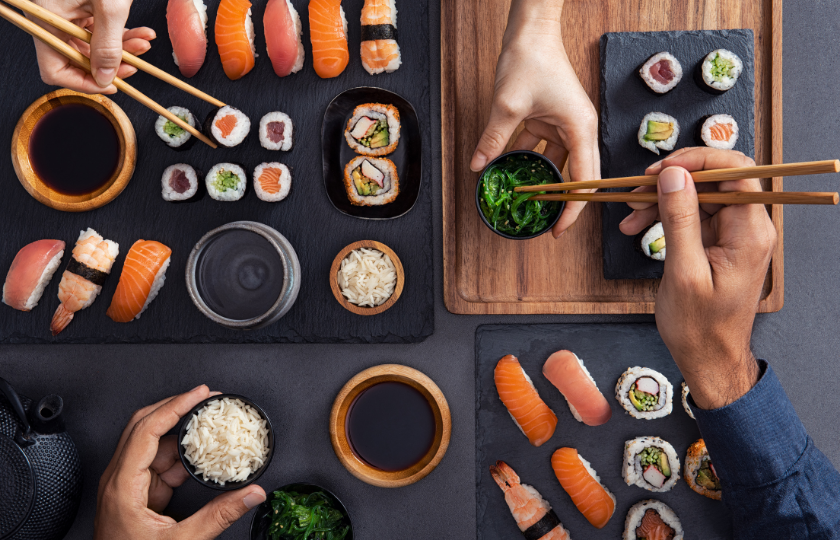Rising ocean temperatures and overfishing are placing massive pressure on many marine species and the world is on track for a shortage of seafood.
More than one-third of the world’s fisheries are being harvested at unsustainable levels according to figures from the UN’s Food and Agriculture Organisation.
A study by the University of British Columbia concludes that if climate change continues to progress at the current rate, global farmed seafood supplies like mussels or salmon could drop by 16 per cent by 2090, and countries such as Norway, Bangladesh, and China – where seafood farming is abundant – could be met with 40-to-90-per-cent decrease.
Fortunately, the alt-seafood industry is pursuing initiatives to promote sustainability and innovation.
In this article, we’ll share 10 innovative and promising alt-seafood companies taking strides to combat climate change by developing seafood with cell-based and lab-grown technologies.
10 promising alt-seafood companies to watch
Umami Meats
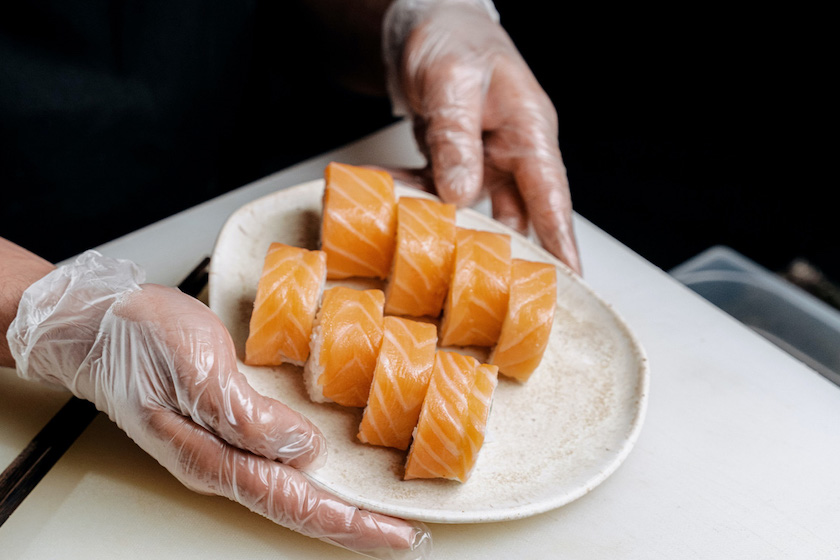
Umami Meats is an alt-seafood startup company in Singapore that is pioneering “not caught” seafood.
The company produces cultivated and cell-based seafood to provide a sustainable alternative to the harmful environmental impact of traditional fishing practices and prevent overfishing.
The process begins by extracting sample stem cells from fish and moving the cells to large bioreactors which help turn them into muscle and fat. The finished fish ‘meat’ is harvested and formed into various alt-seafood products such as fish balls, sashimi, filets, and sushi. The end products have zero antibiotics, mercury, microplastics, or parasites.
Recently, the company has secured pre-seed funding of US$2.4 million to further advance its low-cost production system in cultivating cell-based seafood. Umami meats will continue to partner with purveyors of fine foods, dining establishments, and chefs to preserve the delicate balance of marine life and protect the “taste of the sea”.
- Products available: Red Snapper, Yellowfin Tuna, Japanese Eel.
- Country: Singapore.
Finless Foods
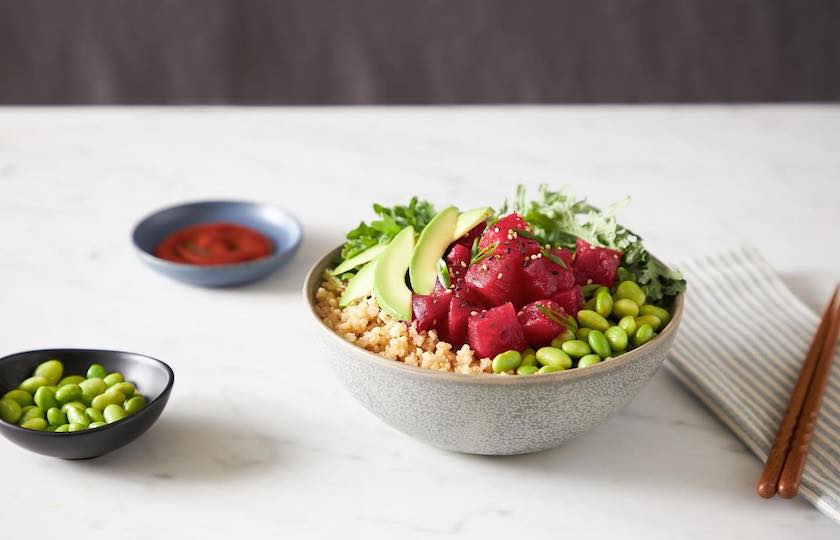
Finless Foods is an alt-seafood company based in California, USA, founded by Michael Selden.
The company produces plant-based and cell-cultured seafood to “help create a future where the ocean thrives”. It uses plant and cell culture technology to help revolutionise how the world sources sustainable seafood.
Since tuna is the second most wild-caught fish globally, the company strongly focuses on producing cell-based and plant-based tuna products. The company’s long-term focus is bringing cell-cultured tuna to the market.
In producing the plant-based tuna, plants are cut and cooked, similar to using a stove in a home kitchen and infused with a patented “Finless ingredient blend” to create the same taste and texture as tuna.
For the cell-cultivated tuna, cells are collected from the meat of a real tuna. Then the cells are fed salts, sugar, proteins, and other nutrients to help facilitate their growth in a bioreactor.
The company has already raised US$34 million to fund for its domestic and international expansion.
- Products available: Plant-based Tuna and Cell-cultured Tuna.
- Country: USA.
Bluu Seafood
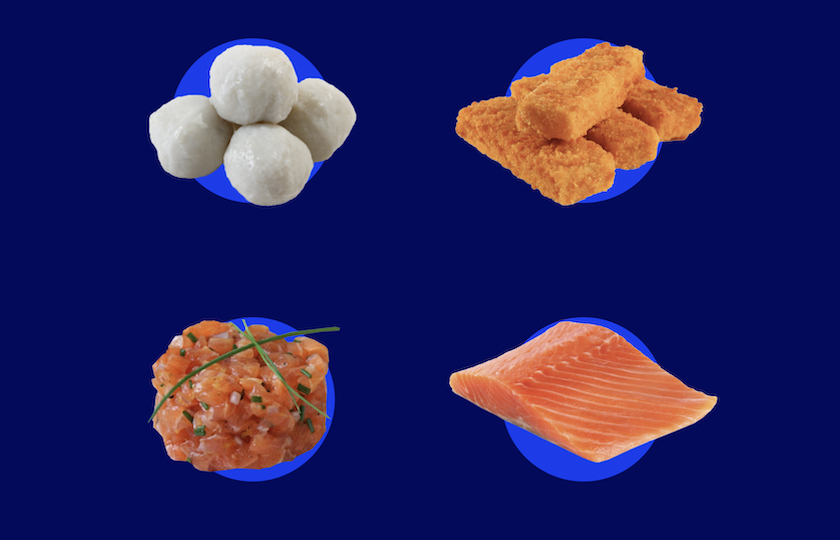
Bluu Seafood is an alt-seafood startup founded by Sebastian Rakers.
Its products are made free from antibiotics, and microplastics, are GMO-free and made with 100 per cent traceable ingredients.
The company cultivates flesh directly from cells, using advanced biotechnology. The cells are sourced from a one-time biopsy from a fish and are isolated in optimal, serum-free conditions to facilitate cell growth. The cells are fed nutrients in the bioreactor to promote growth and turn into novel food products such as fillets, fish sticks, and fish balls.
Bluu Seafood aims to launch its first range of cell-based fish species such as salmon, common carp, and rainbow trout by the end of this year.
- Products available: Atlantic Salmon, Rainbow Trout, Common Carp, Nova Bluu.
- Country: Germany.
The Plant-Based Seafood Co.
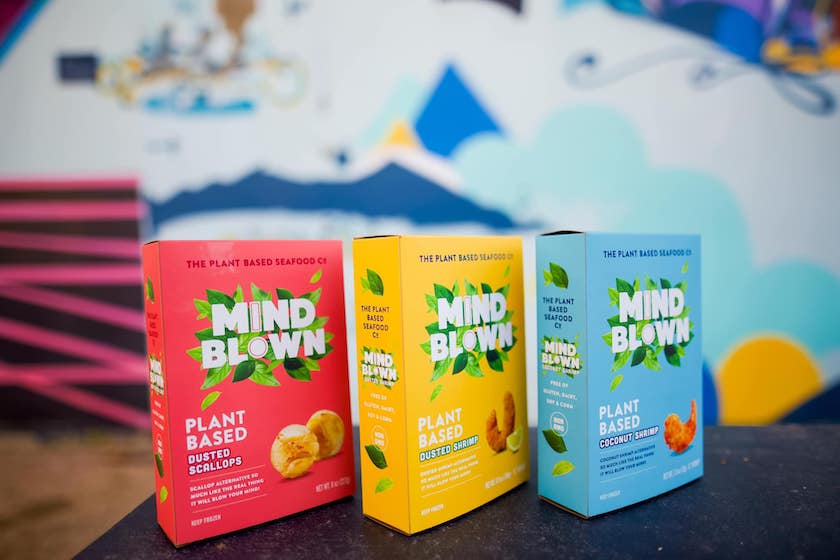
The Plant-Based Seafood Co is an all-female, family-owned company located in Gwynn’s Island, Virginia, USA. The brand aims to produce healthy and delicious plant-based seafood that is “close to the real thing”.
The alt-seafood is made using plant-based ingredients such as rice flour, artichoke, and chickpea, which are seasoned with sea salt, paprika, and konjac powder to help make the taste of their seafood as closes to the real thing as possible.
The company has recently partnered with Harris Teeter, a retail grocer, to help further expand its Mind Blown! Seafood products in its stores are located in Georgia, Maryland, North Carolina, Florida, Delaware, the District of Columbia, South Carolina, and Virginia.
- Products available: Plant-based shrimp, plant-based scallops, and plant-based crab cakes.
- Country: USA.
Wanda Fish
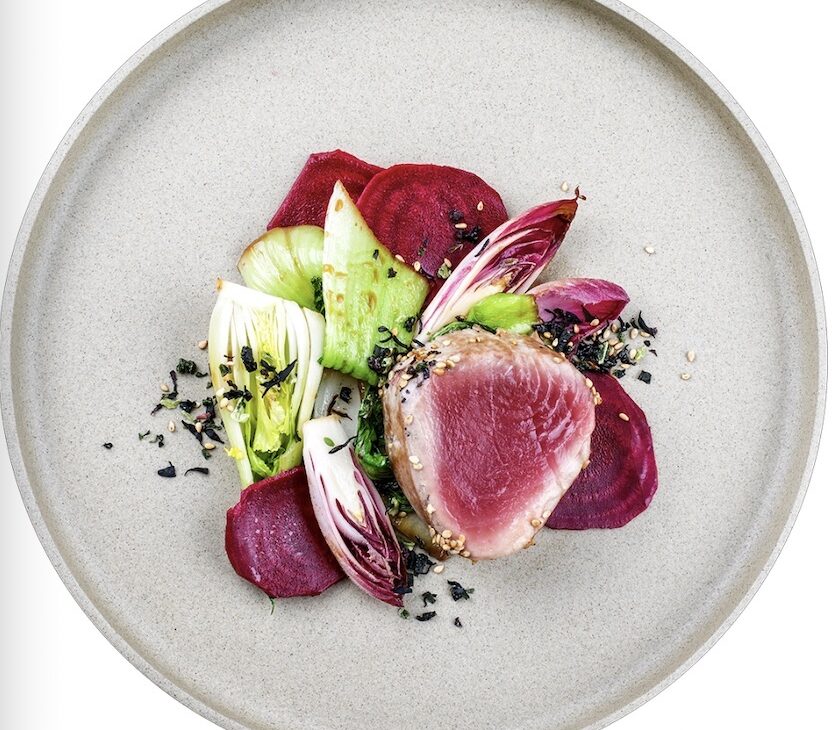
Wanda Fish is an innovative Israeli food-tech startup company that produces various cell-cultivated fish filets using sustainable practices.
According to the company, it aims to produce uncompromised quality cultivated seafood, integrated with innovation from various fields of biotechnology, cell culture, food tech, and culinary design.
The alt-seafood products are produced in a hygienic environment, with animal-free growing media, devoid of microplastics, mercury, toxins, and chemicals usually found in wild-caught and aquacultures.
The company recently signed two agreements with a private research facility Tufts University to help the company advance its goals in seafood cultivation.
- Products available: Cell-based fish fillet.
- Country: Israel.
BlueNalu
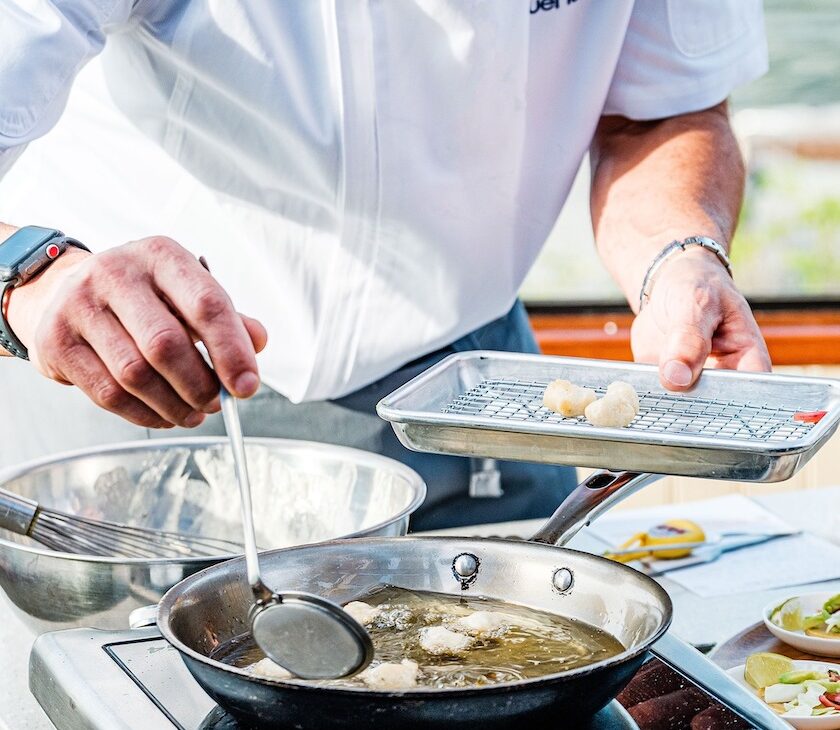
BlueNalu is an alt-seafood company based in San Diego, California.
The company is pioneering the category of “cellular aquaculture”, where living cells are isolated from fish tissue, placed into culture media for proliferation, and then assembled into seafood products free from plastics, pathogens, toxins and other contaminants.
BlueNalu has raised over US$60 million in funding dedicated to its research and innovation of cell-cultured seafood products.
- Products available: Fresh and frozen cell-based fish.
- Country: USA.
Good Catch
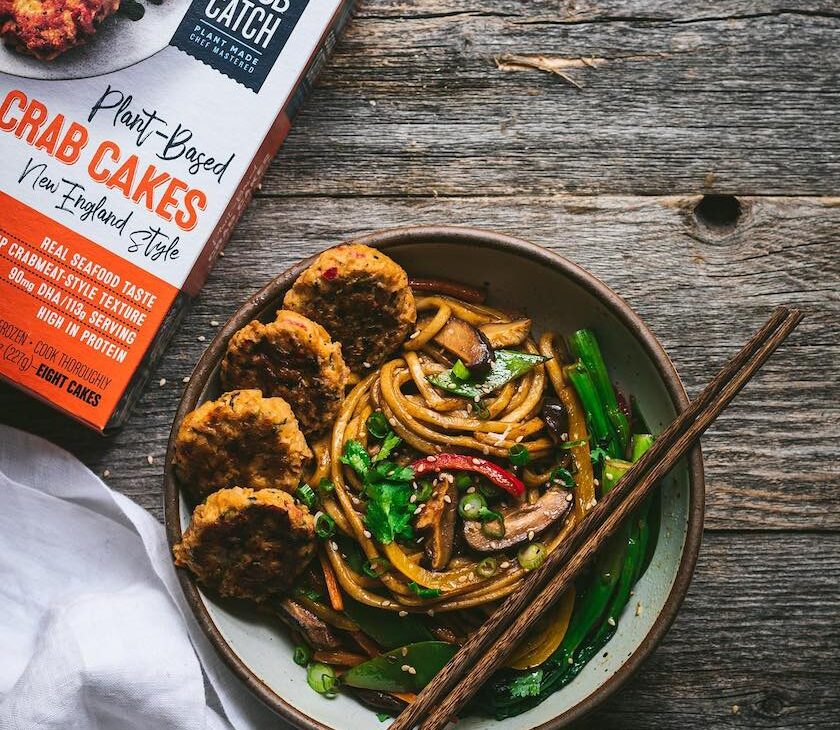
Good Catch is a US-based company that produces plant-based seafood protein alternatives. The company was founded by Chad Sarno, who served as VP of plant-based education at Rouxbe Cooking School and was the global wellness coordinator, media spokesperson and R&D chef for Whole Foods Market’s focus on plant-based diets.
The brand’s products are made from a combination of a six-legume blend of peas, chickpeas, lentils, soy, fava beans and navy beans and are strictly void of seafood from animals (or any ingredient derived from animals), artificial flavours, palm oil or canola oil, hydrogenated or partially hydrogenated fats, or synthetic colours.
Good Catch has launched the first-ever US-made, plant-based Salmon Burgers and has raised US$45 million for the ocean and marine life preservation.
- Products available: Salmon Burgers, Fish Sticks, Fish Filets, Crab Cakes and Fish Burgers.
- Country: USA.
Ocean Hugger Foods
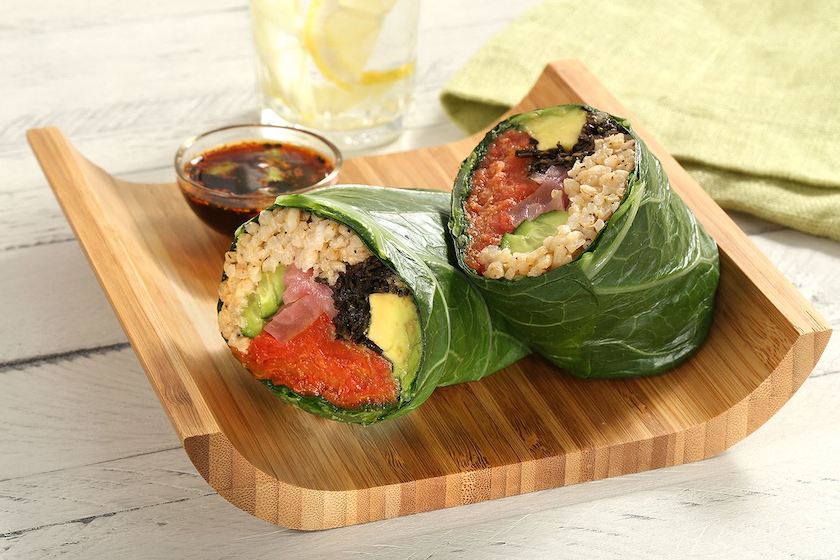
Ocean Hugger Foods is an alt-seafood company that produces sustainable plant-based alternatives to popular seafood products.
James Corwell, the founder of Ocean Hugger Foods, formed the idea of starting an alt-seafood company after seeing a seafood warehouse in Tokyo the size of two football fields. Corwell shared that with the demand for seafood rising, he asked himself, “How can the oceans ever keep up?”
The company uses sustainable and renewable resources like fruits and vegetables to create seafood.
The process begins with whole fruits and vegetables, then removing their flavours. Afterwards, the texture is enhanced to mimic seafood favourites, then flavour is added to replicate the taste.
The flagship product is Ahimi, a plant-based alternative to raw tuna. Afterwards, the company also launched Unami, a plant-based alternative to freshwater eel.
- Products available: Tuna (Ahimi) and Eel (Unami).
- Country: USA.
Shiok Meats
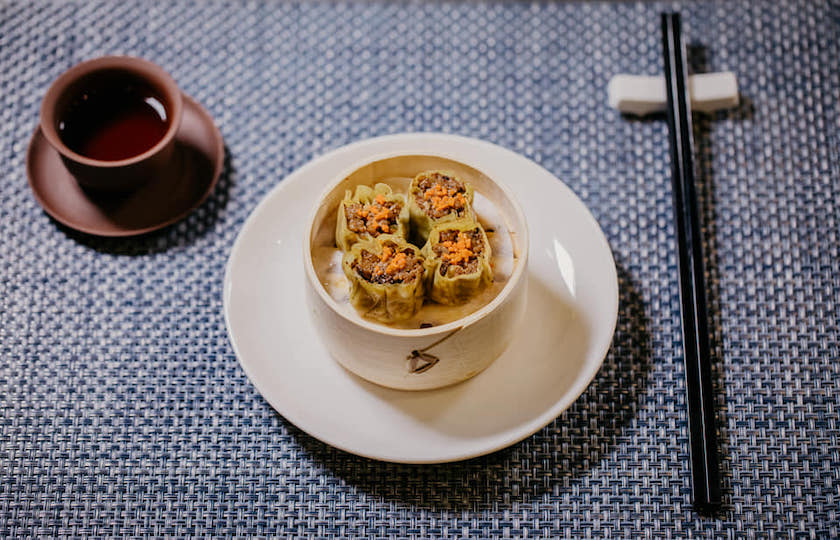
“Shiok” in Malay and Singaporean slang means fantastic and delicious. The company also owns Southeast Asia’s first cultivated red meat company, Gaia Foods.
The company aims to produce sustainable and healthy seafood cultivated from healthy cells of crustaceans using cellular agriculture technology.
Recently, Shiok Meats announced and designed the #Cellect competition to support advancement and innovation in cellular agriculture and sustainability. It plans to commercials its alt-seafood by 2023.
- Products available: Cell-based shrimp, crabs, and lobsters.
- Country: Singapore.
Wild Type
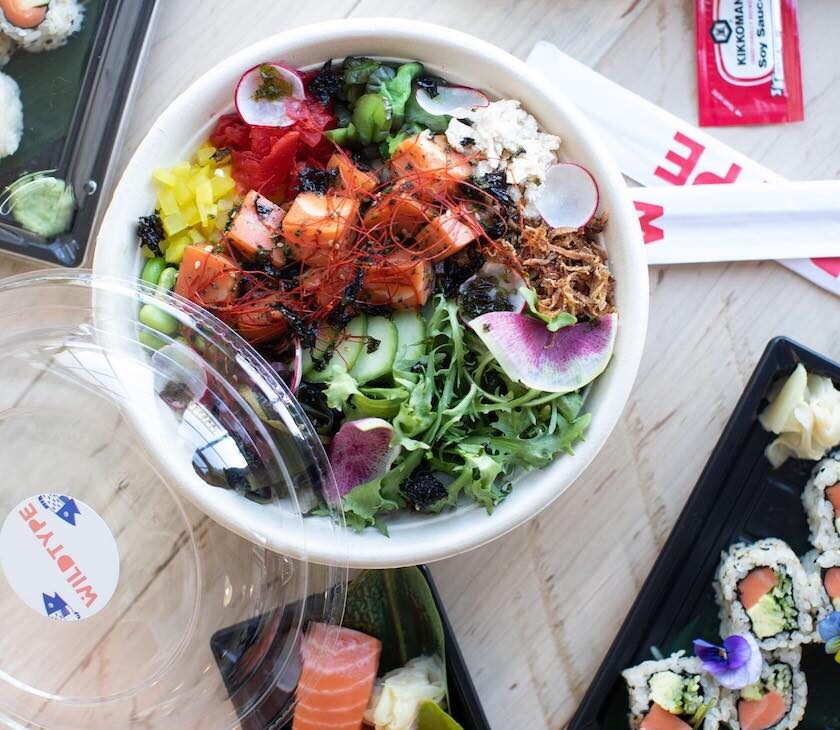
Wild Type is an alt-seafood company founded by Aryé Elfenbein, a PhD cardiologist, and Justin Kolbeck, a diplomat. The duo stated they were deeply influenced by stem cell research breakthroughs and after witnessing the impact of global food insecurity in Afghanistan and Pakistan during their service.
The company produces cell-based seafood – salmon or sushi-grade salmon – void of microplastics, mercury, antibiotics, and other common contaminants.
- Products available: Sushi-grade salmon.
- Country: USA.
Conclusion
Innovating to become more sustainable takes much time, effort, and money, so it is impressive to find seafood companies that are not shy to innovate to become more sustainable. Their dedication to saving marine life and helping resolve the worsening seafood shortage is commendable.
It is comforting to know that slowly but surely, people are taking tough steps to help make the world, including its oceans, a better place.

